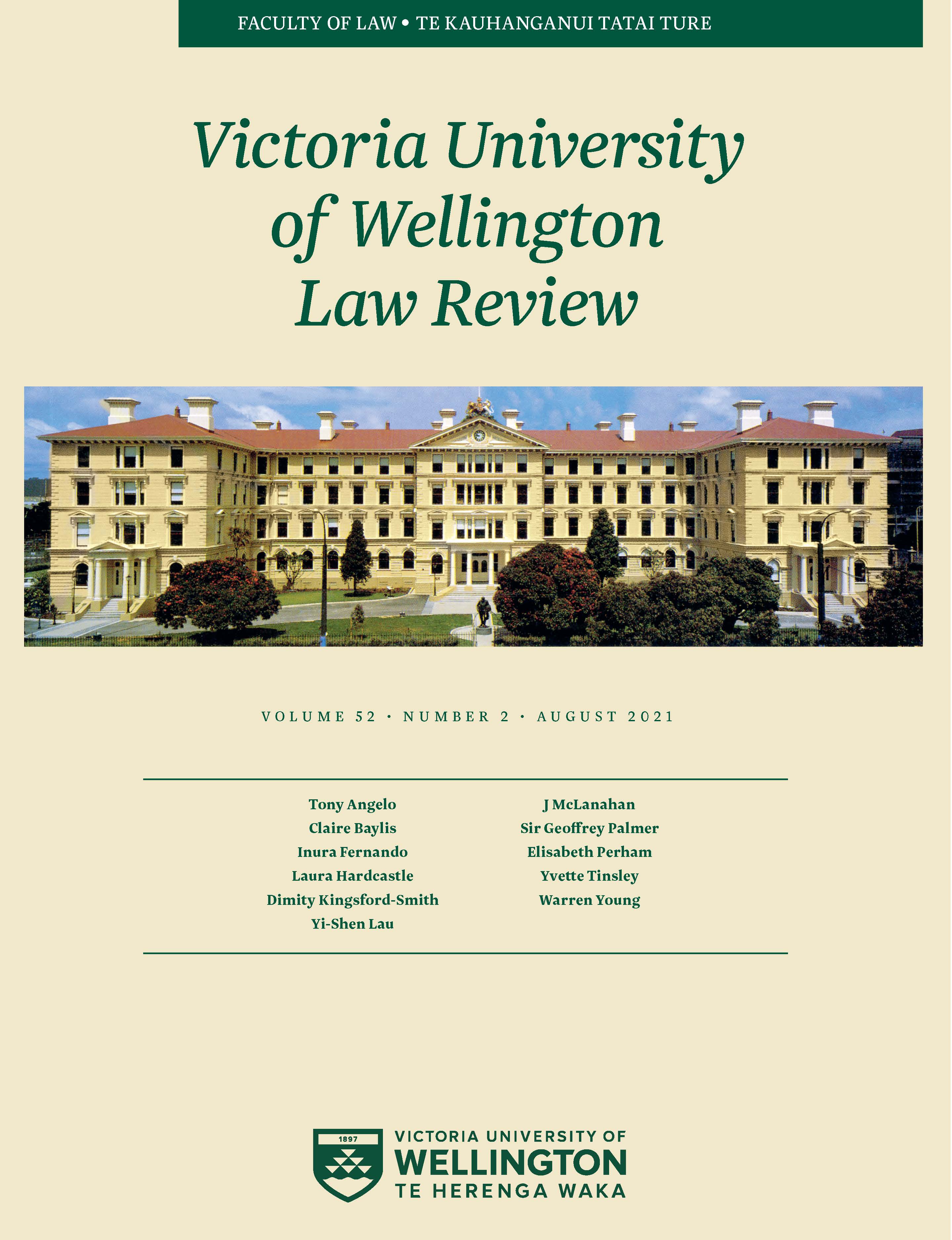A Law and Behavioural Economics Analysis of High-Cost Lending in New Zealand
DOI:
https://doi.org/10.26686/vuwlr.v52i2.7124Abstract
The most interesting recent developments in economics have come from behavioural economics, which attempts to model how people will behave in real life situations. The insights offered by behavioural economics can also be applied to law. This article discusses law and behavioural economics generally, and then applies it to the New Zealand high-cost loan industry. The high-cost loan industry is responsible for a great deal of harm in New Zealand, and in 2019 Parliament passed sweeping amendments to the Credit Contracts and Consumer Finance Act 2003 to insulate consumers from that harm. Law and behavioural economics suggest alternative strategies to those amendments that can address the harms while retaining the benefits that high-cost loans can provide. This article designed an experimental survey to test one such strategy, and the results and implications for policy are discussed.
Downloads
Downloads
Published
How to Cite
Issue
Section
License
Authors retain copyright in their work published in the Victoria University of Wellington Law Review.


